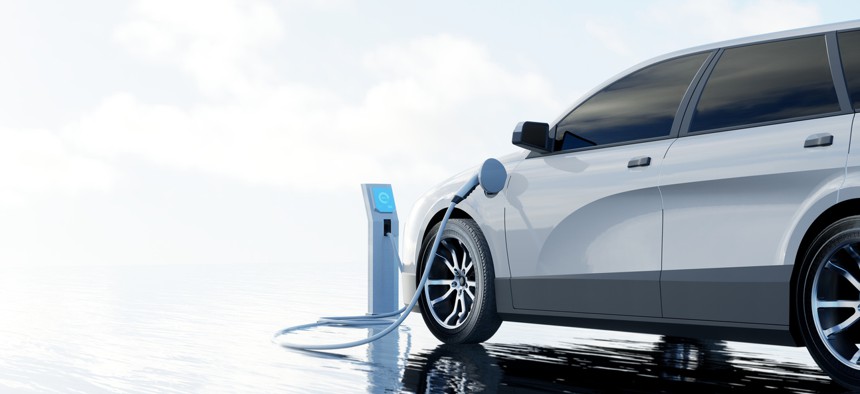Washington State Sets 2030 Goal for Phasing Out Gas-Powered Cars

istock.com/3alexd
The measure, awaiting a signature from Gov. Jay Inslee, comes after California set a similar target.
Lawmakers in Washington have approved a measure that sets a 2030 goal for phasing out gas-powered cars in the state and moving toward electric vehicles.
The bill establishes a target for passenger and light duty vehicles model year 2030 and later to be electric. The policy would cover government and privately owned vehicles that are sold, purchased, or registered in Washington. But lawmakers made clear in the bill that nothing in the legislation authorizes state agencies to restrict people from buying, selling or registering cars that are not electric. In other words, it's not a mandate, or a ban on internal combustion vehicles.
And before the electric vehicle goals in the legislation would be triggered, the state would have to broadly adopt a road usage charge, where motorists are assessed a fee based on the miles they travel as an alternative to a tax on gasoline. Per the bill, 75% of light-duty vehicles would have to participate in that type of funding program before the goal goes into effect.
The 2030 goal is five years earlier than one outlined via executive order last year by Democratic Gov. Gavin Newsom in California, as well as a “roadmap” released in December by Massachusetts Gov. Charlie Baker, a Republican.
The measure, approved as part of a larger initiative intended to prepare the state for “a zero-emissions transportation future,” passed 25-23 in the Senate and 54-43 in the House and is awaiting approval from Gov. Jay Inslee, a Democrat, who has been aggressive in pushing for policies to combat climate change.
In addition to the electric-vehicle goal, the legislation requires the state to begin “comprehensive planning” for adequate green infrastructure to support the cars, including production facilities and charging stations “in desirable locations with amenities.”
"Passage of this legislation takes the guesswork and uncertainty out of the electric vehicle transition by creating a clear timeline with the data, tools, and guidelines we need to help businesses, developers, governments, and consumers plan with confidence," state Sen. Marko Liias, a Democrat from Lynnwood and one of the legislation’s supporters, said in a statement.
A number of auto manufacturers have pledged to pivot to more zero-emission vehicles in the future, including General Motors, which said in January it aspired “to eliminate tailpipe emissions from new light-duty vehicles by 2035.”
Washington has been studying the possibility of a mileage-based fee since 2012, when lawmakers directed the Washington State Transportation Commission to work with the Department of Transportation and other stakeholders “to conduct an assessment of road usage charging and determine if it is feasible,” the commission says on its website.
Through that work, which includes an ongoing pilot program, state officials have “determined that road usage charging is feasible and that it will out-produce the gas tax in terms of revenue, as cars become more fuel efficient.”
Correction: This story has been updated to clarify that the measure is a goal and not a mandate.
Kate Elizabeth Queram is a senior reporter for Route Fifty and is based in Washington, D.C.
NEXT STORY: State-Supported 'Clean Energy' Loans Are Putting Borrowers At Risk of Losing Their Homes





